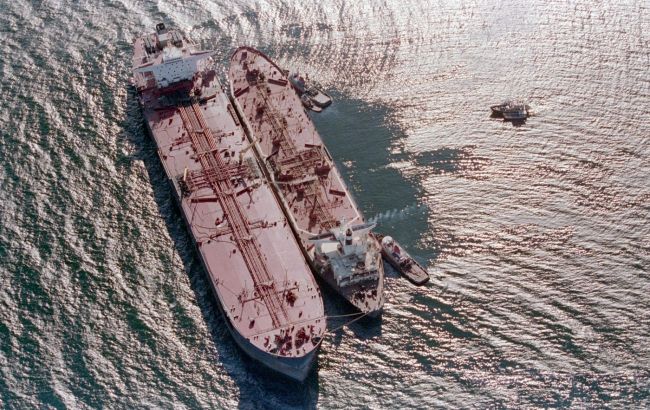China's major ports ban entry to Moscow's 'shadow fleet' tankers – Reuters
 Photo: China has closed access to tankers of Russia's shadow fleet (Getty Images)
Photo: China has closed access to tankers of Russia's shadow fleet (Getty Images)
Shandong Port Group prohibits tankers under US sanctions from entering its ports in Eastern China's province, Reuters reports.
Shandong Port Group controls major ports on China's eastern coast, including Qingdao, Rizhao, and Yantai, which serve as key terminals for importing sanctioned oil.
Last year, Shandong province imported approximately 1.74 million barrels of oil per day from Iran, Russia, and Venezuela, accounting for about 17% of China's total oil imports.
Last month, Washington imposed additional sanctions on companies and the "shadow fleet" involved in handling Iranian oil. President-elect Donald Trump, who is set to take office on January 20, is expected to tighten sanctions on Iran further, continuing his approach from his first administration.
According to traders, the ban may slow down oil imports into China, the world's largest oil importer.
The Shandong port notification prohibits docking, unloading, or providing ship services to vessels listed by the Office of Foreign Assets Control (OFAC), which operates under the US Department of the Treasury.
The ban was enforced after the Eliza II tanker, which is under sanctions, unloaded oil at Yantai port in early January.
According to tanker tracking company Vortexa, in December, eight very large crude carriers (VLCCs), each with a capacity of two million barrels, unloaded mostly Iranian oil in Shandong. These included the tankers Phonix, Vigor, Quinn, and Divine, all of which are under US Treasury sanctions.
Shadow fleet
According to Michelle Wiese Bockmann, principal analyst with maritime data group Lloyd's List Intelligence, an active shadow fleet transporting oil from Iran, Russia, and Venezuela is estimated to consist of about 669 tankers.
Michelle Wiese Bockmann noted that of this total, 250-300 tankers were typically involved in transporting Russian oil, excluding the largest Iranian operator, NITC, and Russia's Sovcomflot tanker group.
Between October and December, the US Treasury imposed sanctions on 35 tankers operating in Iran's shadow fleet, excluding vessels run by NITC. In early 2024, Washington introduced separate sanctions against Sovcomflot.
Sources told Reuters this week that the Biden administration plans to impose sanctions on more than 100 tankers carrying Russian oil.
On January 7, the US Department of Defense announced that it had added COSCO, China's largest shipping company, to the list of companies cooperating with the Chinese military, which may hinder charterers from using COSCO tankers and worsen the shortage of available vessels for hire.


